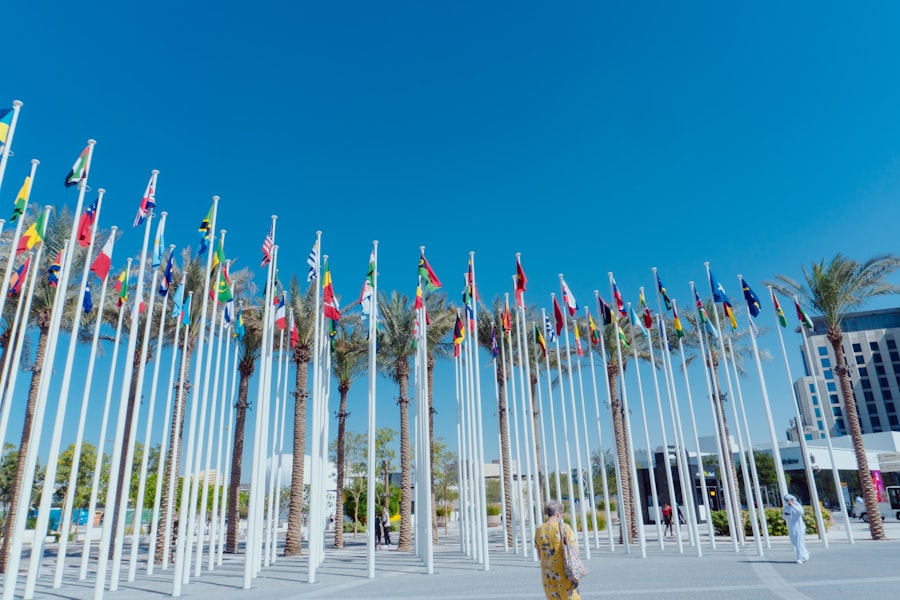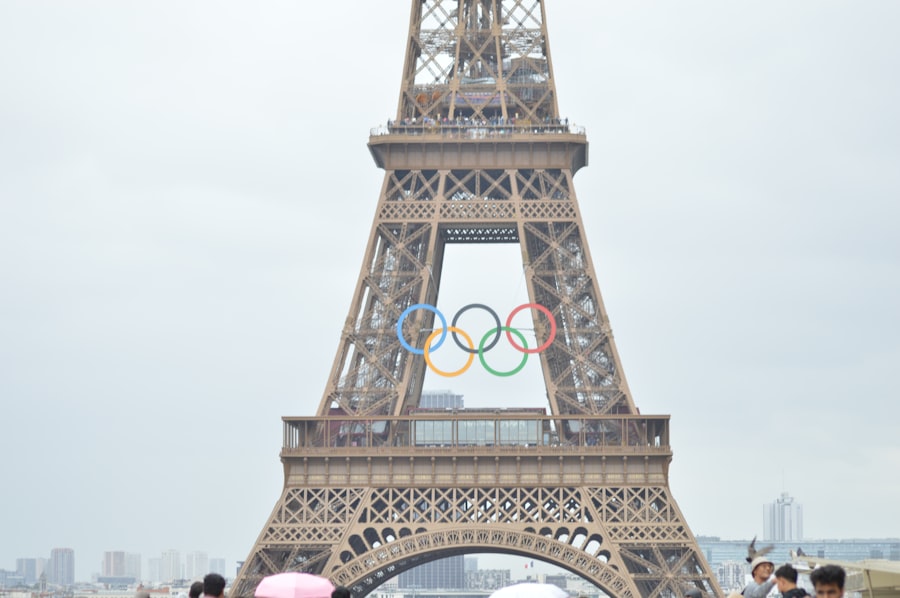The Olympic Agency, often referred to as the International Olympic Committee (IOC), serves as the governing body for the Olympic Movement, which encompasses the organization of the Olympic Games and the promotion of Olympic values worldwide. Established in 1894, the IOC has evolved into a multifaceted organization that not only oversees the logistics of the Games but also champions the principles of excellence, friendship, and respect among athletes and nations. The agency’s mission extends beyond mere event management; it aims to foster a spirit of unity and competition that transcends borders, cultures, and ideologies.
The IOC is responsible for a wide array of functions, including the selection of host cities for the Games, the establishment of rules and regulations for various sports, and the promotion of youth engagement through initiatives like the Youth Olympic Games. The agency also plays a crucial role in ensuring that the Olympic Games remain a platform for showcasing athletic prowess while upholding ethical standards. This commitment to integrity is particularly significant in an era where sports are increasingly scrutinized for issues such as doping, corruption, and commercial exploitation.
Key Takeaways
- Olympic Agency plays a crucial role in promoting and ensuring fair play in the Olympic Games.
- It implements strict anti-doping measures to maintain a level playing field for all athletes.
- Integrity in Olympic sports is essential for preserving the spirit and credibility of the Games.
- The agency collaborates with national and international organizations to strengthen enforcement and compliance.
- Despite challenges, the Olympic Agency is committed to future initiatives that enhance fairness and transparency.
Role of Olympic Agency in Ensuring Fair Play
At the heart of the Olympic Agency’s mission is the commitment to fair play, which is essential for maintaining the integrity of the Games. Fair play encompasses not only adherence to rules but also the spirit of sportsmanship that athletes are expected to embody. The IOC actively promotes this ethos through various educational programs and initiatives aimed at athletes, coaches, and officials.
By instilling a deep understanding of fair play from an early age, the agency seeks to cultivate a culture where respect for opponents and adherence to rules are paramount. The agency’s role in ensuring fair play extends to monitoring competitions and enforcing regulations that govern athlete conduct. This includes establishing guidelines for sportsmanship and ethical behavior during competitions.
The IOC collaborates with international sports federations to develop comprehensive frameworks that address issues such as cheating, match-fixing, and unsportsmanlike conduct. By doing so, the Olympic Agency not only safeguards the integrity of individual sports but also reinforces the overall credibility of the Olympic Movement.
Measures Taken by Olympic Agency to Prevent Doping

Doping remains one of the most significant challenges facing the Olympic Agency in its quest to uphold fair play. To combat this issue, the IOC has implemented a robust anti-doping framework that includes rigorous testing protocols and educational initiatives aimed at athletes. The World Anti-Doping Agency (WADA), established in 1999, plays a pivotal role in this effort by setting global standards for anti-doping policies and practices.
The IOC works closely with WADA to ensure that all athletes are subject to consistent testing procedures, regardless of their nationality or sport. One of the key measures taken by the IOC is the introduction of out-of-competition testing, which allows for random drug tests to be conducted at any time during an athlete’s training cycle. This proactive approach aims to deter athletes from using performance-enhancing substances by increasing the likelihood of detection.
Additionally, the IOC has invested in advanced testing technologies that can identify new and emerging substances, thereby staying ahead of those who seek to exploit loopholes in doping regulations. The agency’s commitment to transparency is evident in its public reporting on doping violations, which serves as both a deterrent and a means of accountability.
The Importance of Integrity in Olympic Sports
| Metric | Description | Impact on Olympic Sports |
|---|---|---|
| Number of Doping Violations | Instances where athletes tested positive for banned substances | Undermines fair competition and damages the reputation of the Olympics |
| Percentage of Athletes Passing Integrity Tests | Proportion of athletes cleared through background and ethical screening | Ensures trustworthiness and promotes a level playing field |
| Incidents of Match-Fixing | Reported cases of deliberate manipulation of game outcomes | Compromises the authenticity of results and fan trust |
| Fair Play Awards Given | Number of awards recognizing sportsmanship and ethical behavior | Encourages athletes to uphold integrity and respect |
| Public Trust Index | Survey-based measure of public confidence in Olympic fairness | Reflects the overall perception of integrity in the Games |
| Number of Ethics Training Sessions | Educational programs conducted for athletes and officials | Promotes awareness and adherence to ethical standards |
Integrity is a cornerstone of the Olympic Movement, serving as a guiding principle that shapes the behavior of athletes, officials, and organizations involved in sports. The importance of integrity cannot be overstated; it is what distinguishes legitimate competition from corruption and dishonesty. The Olympic Agency recognizes that maintaining integrity is essential not only for preserving the reputation of the Games but also for fostering trust among stakeholders, including athletes, sponsors, and fans.
The IOC’s emphasis on integrity is reflected in its commitment to ethical governance and accountability. This includes implementing strict codes of conduct for athletes and officials, as well as establishing mechanisms for reporting misconduct. By promoting a culture of integrity, the Olympic Agency aims to create an environment where athletes can compete fairly and without fear of manipulation or exploitation.
This commitment extends beyond competition; it encompasses all aspects of the Olympic Movement, including governance, sponsorships, and community engagement.
Collaboration with National and International Organizations
The Olympic Agency understands that upholding fair play and integrity in sports requires collaboration with various stakeholders at both national and international levels. The IOC works closely with national Olympic committees (NOCs), international sports federations (IFs), and governmental bodies to create a unified approach to promoting ethical standards in sports. This collaborative effort ensures that policies are not only effective but also culturally relevant and adaptable to different contexts.
One notable example of this collaboration is the IOC’s partnership with WADA in developing anti-doping strategies that are implemented globally. By aligning efforts with NOCs and IFs, the IOC can ensure that anti-doping measures are consistently applied across all sports and countries. Furthermore, these partnerships extend to educational initiatives aimed at raising awareness about fair play and integrity among athletes at all levels.
Through workshops, seminars, and outreach programs, the Olympic Agency fosters a shared commitment to ethical conduct that resonates throughout the global sports community.
Challenges Faced by Olympic Agency in Upholding Fair Play

Despite its best efforts, the Olympic Agency faces numerous challenges in its pursuit of fair play and integrity within sports. One significant challenge is the ever-evolving landscape of doping practices. As new performance-enhancing substances and methods emerge, staying ahead of those who seek to circumvent regulations becomes increasingly difficult.
The IOC must continuously adapt its testing protocols and educational initiatives to address these challenges effectively. Another challenge lies in addressing corruption within sports governance itself. Instances of bribery, match-fixing, and unethical behavior among officials can undermine public trust in the integrity of competitions.
The IOC has taken steps to combat these issues by implementing stricter governance policies and promoting transparency within its own ranks. However, changing entrenched cultures within various sports organizations can be a slow process that requires sustained effort and commitment from all stakeholders involved.
Future Goals and Initiatives of Olympic Agency
Looking ahead, the Olympic Agency has set ambitious goals aimed at further enhancing fair play and integrity within sports. One key initiative is the continued expansion of educational programs focused on ethics and integrity for athletes, coaches, and officials. By fostering a deeper understanding of these principles from an early age, the IOC hopes to cultivate a new generation of athletes who prioritize fair play above all else.
Additionally, the IOC is exploring innovative technologies that can aid in monitoring compliance with anti-doping regulations. This includes advancements in data analytics and artificial intelligence that can help identify patterns indicative of doping behavior or corruption. By leveraging technology in this way, the Olympic Agency aims to create a more proactive approach to maintaining integrity within sports.
The Impact of Olympic Agency on the Integrity of Olympic Games
The impact of the Olympic Agency on the integrity of the Olympic Games is profound and far-reaching. Through its unwavering commitment to fair play, anti-doping measures, and collaboration with various stakeholders, the IOC plays a crucial role in shaping a sporting environment where ethics are prioritized. While challenges remain, the agency’s proactive approach ensures that it continues to adapt and evolve in response to emerging threats to integrity.
As we look toward future Olympic Games, it is clear that the work of the Olympic Agency will remain vital in preserving the spirit of competition that defines these events. By fostering a culture of integrity among athletes and officials alike, the IOC not only enhances the credibility of the Games but also reinforces their status as a celebration of human achievement on a global stage.



